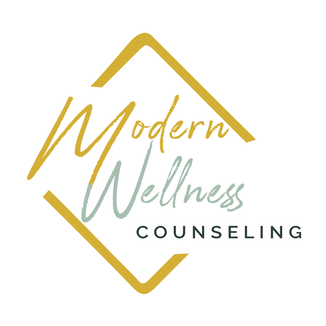Healing from a traumatic experience can be a dynamic and intricate process. One that involves risk, vulnerability, and a need for safety. Now when it comes to working on your relationship, individuals may begin to notice how it can be difficult to connect with their partner, perhaps not understanding exactly why there is such a block. For some people, it may be a relief to make sense of this block and to notice that there are ways to overcome such a block.
Regardless of where you are in your journey to self-healing, know that you are not alone. I want to shed some light on how trauma can come up for you in your body and ways in which you can work through this with your partner.
How trauma can show up in the body
When working with clients that have experienced trauma, often the first place we start is to understand what is happening to their body physically. Especially in moments of stress. Some examples of physical effects from trauma can be:
- Fatigue
- Headaches
- Muscle tension
- Easily startled
- Stomach pain
- Racing heart
These physical responses can also show up in moments of feeling insecure in your relationship or in disagreements. This is where we begin to untangle the association of past traumatic events with current moments of trying to connect with your partner. For example, it is normal to feel muscle tension if you are arguing about finances with your partner. But for those who have experienced a traumatic past event and have not processed or learned to utilize healthy coping skills, they may begin to associate the fear they had from the traumatic event with the argument of finances because their body is responding the same way. As this repeats, it becomes challenging to trust that it is okay to have the financial conversation because they are afraid of how their body may respond and the fear of this is overwhelming. If you would like to dive deeper in understanding how past trauma can change one’s physiology and mind, there is a great book that I highly recommend, it’s called The Body Keeps the Score: Brain, Mind, and Body in the Healing of Trauma by van der Kolk M.D., Bessel.
It’s normal to experience triggers
The physical changes that occur due to past trauma can be a result of experiencing a trigger. Experiencing triggers are normal and they come in all different forms. Something as small as a familiar scent to when the traumatic event happened can be a trigger to experiencing a headache or feeling unsafe. It’s important for individuals who have experienced a traumatic event to take time to learn how they can potentially show up in life and learn ways to feel grounded again.

How these reactions and triggers can impact your relationship
If you (or your partner) have unresolved trauma from your past or have recently experienced a traumatic event, it can be challenging to trust your partner, even though they may not be the ones who hurt you. Naturally, you may be on guard to protect yourself from potentially being hurt, especially if it was someone in your past that you trusted who ended up hurting you. This can be frustrating for both you and your partner, as it makes it challenging to connect and understand each other if there hasn’t been practice in verbalizing the trauma.
Similarly to finding it challenging to trust your partner, it can also be scary to be vulnerable with your partner when it comes to emotionally expressing yourself because chances are, you may not want to sit with your emotions because if you did, it would be too overwhelming.
These two components of finding it challenging to trust and be vulnerable can compound and make it hard to engage in intimacy with your partner because for you, you are trying to protect yourself and stay safe.
Ways you can overcome this
If you are thinking, “there is no way I can change this, this is all I know,” do not worry, this is not a lost cause! It is possible for you to learn ways to work through past trauma and connect in a healthy way. Here are some suggestions in how you can overcome a:
- Begin individual counseling to address the trauma and learn why and how your triggers show up in your body and environment. In addition to raising self-awareness, you can also learn healthy ways to cope and manage triggers.
- Begin couples counseling so that you can learn how to vocalize and communicate your fears and needs with your partner. You can also learn how to take the risk of being vulnerable with your partner and to be able to ask for needs of safety to be met. In addition, your partner can learn how to create a safe space for you and also begin to learn how they can show up for you.
- In couples counseling, you can learn how you can also meet your partner’s needs. Chances are, if you have experienced a traumatic event or have a traumatic history, you may not know how to get close with your partner. Some of my clients have felt that they are “broken” or that “something is wrong with them” because mentally they want the closeness but physically and emotionally it is taxing. Which unfortunately leads to a vicious cycle of experiencing a block.
- Be patient and kind with yourself. Processing and healing from trauma is not a quick and easy experience. It takes a lot of guidance and self-love to be able to do this but know that you are not alone.
If you have ever experienced a past traumatic event and have noticed it impacting your romantic relationship, clinicians at Modern Wellness Counseling are able to help you. Feel free to contact our office at (210) 706-0392 to schedule an appointment so that you and your partner can begin your healing journey.
By Priscilla Rodriguez, M.S., LMFT, Owner of Modern Wellness Counseling
Priscilla specializes in working with couples and individuals who have experienced past trauma and who are looking to find healthy ways to cope and find ways to connect with their partner. Priscilla utilizes research based techniques to help clients implement healthy coping skills and communication skills. Learn more on how you can enhance your relationship today.




